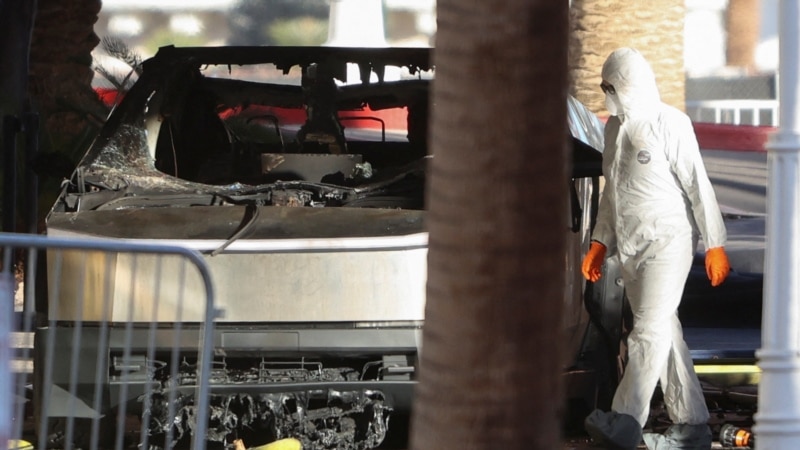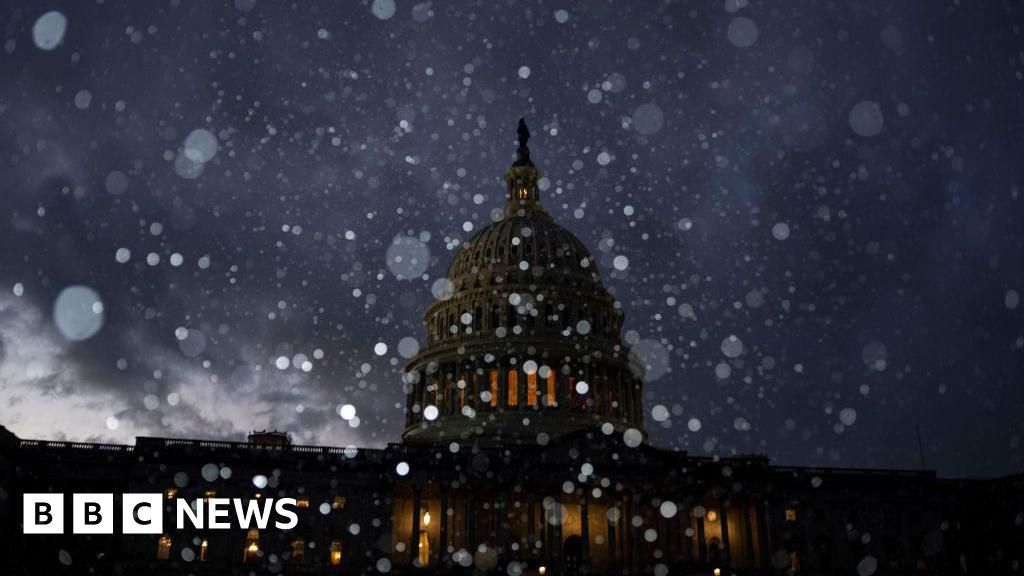
Your car is spying on you.
That’s one of the takeaways from the rapid, detailed data Tesla collected from the driver of one of its Cybertrucks that exploded in Las Vegas, Nevada, earlier this week. Privacy data experts say the in-depth study by Elon Musk’s company was impressive, but it also sheds light on a difficult question as vehicles become less like cars and more like computers on wheels.
“You may want law enforcement to have the data they need to crack down on criminals, but can just anyone have access to it?” said Jodi Daniels, CEO of privacy consulting firm Red Clover Advisors.
Most newer cars not only know where you’ve been and where you’re going, but also often have access to your contacts, call logs, text messages, and other sensitive information through vehicle synchronization. cell phone.
Data collected by Musk’s electric car company after the fireworks-filled Cybertruck caught fire outside the Trump International Hotel on Wednesday proved valuable to police in helping track the driver’s movements.
Hours after the New Year’s Eve explosion that burned the driver beyond recognition and injured seven people, Tesla was able to track Matthew Livelsberger’s movements in detail from Denver to Las Vegas — and confirm the problem was explosives in the truck, not from the truck itself. Tesla used data collected from charging stations and on-board software.
“I have to thank Elon Musk in particular,” Las Vegas Metropolitan Police Sheriff Kevin McMahill told reporters.
Some privacy experts were less enthusiastic.
“This reveals the type of large-scale surveillance that is going on,” said David Choffnes, executive director of the Cybersecurity and Privacy Institute at Northeastern University in Boston. “When something bad happens, it’s useful, but it’s a double-edged sword. Companies that collect this data can abuse it.”
General Motors, for example, was sued in August by the Texas attorney general for allegedly selling the data of 1.8 million drivers to insurance companies without their consent.
Cars equipped with cameras to enable self-driving features have added a new safety risk. Tesla itself came under fire after Reuters reported how employees from 2019 to 2022 shared sensitive videos and recordings of drivers with each other, including videos of road rage incidents and, in one case, of nudity.
Tesla did not respond to emailed questions about its privacy policy. On its website, Tesla claims to follow strict rules regarding the confidentiality of names and information.
“No one other than you would have knowledge of your activities, location or travel history,” according to a statement. “Your information remains confidential and secure.”
Sam Abuelsamid, an automotive analyst at Telemetry Insight, said he didn’t think Tesla was “particularly worse” than other automakers in handling customer data, but he remained concerned.
“It’s one of the biggest ethical issues we have with modern vehicles. They’re connected,” he said. “Consumers must have control of their data.”
Tensions were high when the Cybertruck parked outside the front door of Trump’s hotel started smoking and then caught fire. Hours earlier, the driver of another vehicle using the same peer-to-peer car rental service, Turo, killed 15 people after crashing into a crowd in New Orleans, Louisiana, in what law enforcement The order qualifies as a terrorist attack.
Shortly before 1 p.m., Las Vegas police announced they were investigating a second incident.
“The entire senior team at Tesla is investigating this matter at this time,” Musk wrote on X. “Will release more information as soon as we learn anything.”
Over the next few hours, Tesla was able to piece together Livelsberger’s five-day, four-state trip by tracking, among other things, his charging stops at various locations, including Monument, Colorado, Albuquerque, New Mexico, and Flagstaff, Arizona .
USA voanews

